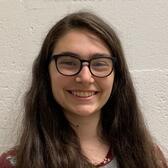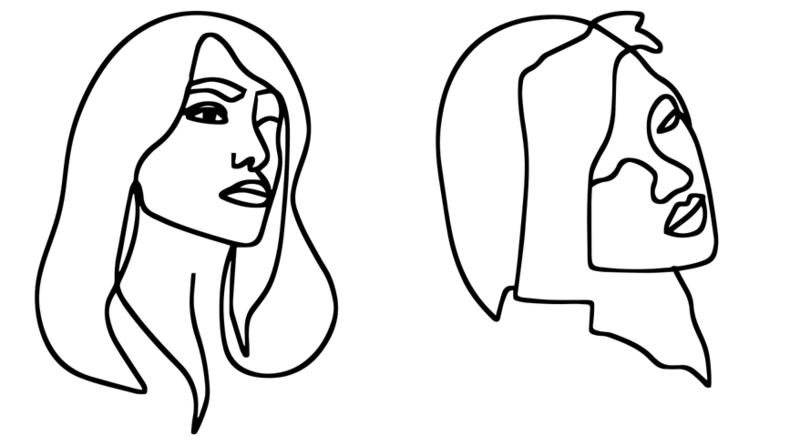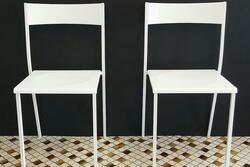Feminism and My Orthodox Jewish Women's Spaces
For many, the words “Orthodox Judaism” and “feminism” make no sense placed next to each other. Mainstream views of both dictate that the teachings of one directly oppose the other. As someone who holds dear the values of both of these movements, others might assume that my life is fraught with tension—eternally playing a balancing act of compromising some value of one for the sake of a different value of the other. But I’ve largely found that this dichotomy is foisted upon me by outside sources, and that the Orthodox women and spaces I’ve been surrounded by have been some of the most influential to my development as a feminist.
The existence of single gender spaces in Orthodoxy has long been condemned as oppressive. Why would a woman want to pray and learn in a space where she cannot participate as a “full” member of the community? Such questions ignore the perspectives of women who say we want these spaces—and that women’s spaces help us find community and empowerment.
I’ve always been drawn to learning with women, and doubly so when I’m exploring topics typically learned by men. As every women’s college I’ve toured has pointed out, learning in women's spaces allows one to grow, learn, and explore, unfettered by the patriarchy.
When I first began to seriously explore Jewish texts, I had no understanding of the fact that some people thought those texts should be inaccessible to me. I learned one on one, with a teacher who taught me that every text was fair game for me to learn and that I was never inherently incompetent at learning any text due to a fault of my own character, but that I simply needed to keep practicing to build my skills. Even when it was frustratingly difficult, I never doubted that I was capable of learning Talmud.
But later, when I discussed my learning with family, or some of the men in my community, my ability to learn was questioned. Not my command of the material, but the fact that I had the ability or motivation to study at all. I was required to provide proof of my knowledge for wanting to learn the same things that would be expected of any man my age. I was questioned on why I chose to spend my time learning Sanhedrin and Nedarim when I could have been (or should have been) learning something “more practical.”
And frustratingly, these experiences also happened in spaces where my secular knowledge was held up to the same standard as my male peers. Why should my ability to read and understand Marx not be questioned, but my ability to learn Talmud be a constant object of scrutiny? (Especially when I am actually better at learning Talmud.)
This behavior has its sources in the Mishna. In Mishna Sotah, Rabbi Elizer states that “whoever teaches his daughter Torah, it is as if he teaches her tiflut.” Tiflut is a concept that’s difficult to translate directly, but it’s generally understood in this context to mean that women will not understand Torah, and thus there is no point in teaching them. So in many ways, I found myself stuck between two worlds; I couldn’t learn on my own forever, but I was also alienated in my co-ed Jewish learning spaces.
That is, until I spent a summer at a learning program for high school girls at the Drisha Institute for Jewish Education. There, I realized that the things I loved about being a member of other all-women’s learning programs applied to Torah as well. The Drisha program was a space where I could interrogate the biases in my tradition and where my teacher encouraged my learning and taught me that my Torah was valuable. It was also a space where I got to know women who had dedicated their lives to learning and got to see the different ways they expressed their Jewish feminism.
While at Drisha, I saw that feeling I had sitting in the women’s section of my synagogue transcend beyond my spiritual and ritual life into my intellectual pursuits. The sense of community and support I'd experienced with the women in my synagogue life had translated to my learning. And while Drisha is not an exclusively Orthodox space, the lessons learned there and in other communities led by women helped me to formulate my idea of Orthodox feminism.
My experiences with women’s Orthodox spaces showcase how we can work for an equal Orthodoxy. Instead of treating women’s spaces as subordinate areas to be neglected and set off to the side (often literally), these spaces should be cultivated as unique environments to build empowered communities, run by and for women.
This is not to say there is not currently tremendous opposition to feminism within mainstream Modern Orthodoxy—there is. But the view that Orthodox structures around gender are inherently oppressive and that Orthodox women must be liberated denies the agency of Orthodox women who use these spaces for positive community-building.
When I think about my Orthodoxy, and the Orthodoxy I want to see in the future, I think about women like Blu Greenberg, who would probably be astonished at the progress that has been made in the years since she wrote On Women and Judaism. I think about the women who have built up institutions like Drisha and Yeshivat Maharat. I think about the women who have taught me inside and outside of the classroom. When I think about all of these women, I don’t think about an oppressive institution; rather, I think about empowerment.
This piece was written as part of JWA’s Rising Voices Fellowship.








You unpack the dynamic between orthodoxy and feminism in a clear and interesting way. I will admit that the separation of genders can be offputting personally, but you make a convincing argument for the ways that these spaces can be tools for social change and empowerment. Thank you for providing your perspective!